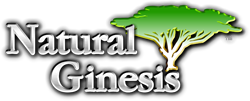- Home
- Essential Oils
Essential Oils
What Are Essential Oils?
Essential oils are natural aromatic compounds found in the seeds, bark, stems, roots, flowers, and other parts of plants. They can be both beautifully and powerfully fragrant. If you have ever enjoyed the gift of a rose, a walk by a field of lavender, or the smell of fresh cut mint, you have experienced the aromatic qualities of essential oils. In addition to giving plants their distinctive smells, essential oils provide plants with protection against predators and disease and play a role in plant pollination.
Essential oils are non water-based phytochemicals made up of volatile organic compounds. Although they are fat soluble, they do not include fatty lipids or acids found in vegetable and animal oils. Essential oils are very clean, almost crisp, to the touch and are immediately absorbed by the skin. Pure, unadulterated essential oils are translucent and range in color from crystal clear to deep blue.
In addition to their intrinsic benefits to plants and being beautifully fragrant to people, essential oils have been used throughout history in many cultures for their medicinal and therapeutic benefits. Modern scientific study and trends towards more holistic approaches to wellness are driving a revival to new discoveries of essential oil health applications.

Essential Oils Throughout History
Essential oils have been used throughout recorded history for a wide variety of wellness applications. The Egyptians were some of the first people to use aromatic essential oils extensively in medical practice, beauty treatment, food preparation, and in religious ceremony. Frankincense, sandalwood, myrrh and cinnamon were considered very valuable cargo along caravan trade routes and were sometimes exchanged for gold.
Borrowing from the Egyptians, the Greeks used essential oils in their practices of therapeutic massage and aromatherapy. The Romans also used aromatic oils to promote health and personal hygiene. Influenced by the Greeks and Romans, as well as Chinese and Indian Ayurvedic use of aromatic herbs, the Persians began to refine distillation methods for extracting essential oils from aromatic plants. Essential oil extracts were used throughout the dark ages in Europe for their anti-bacterial and fragrant properties.
In modern times, the powerful healing properties of essential oils were rediscovered in 1937 by a French chemist, Rene-Maurice Gattefosse, who healed a badly burnt hand with pure lavender oil. A French contemporary, Dr. Jean Valnet, used therapeutic-grade essential oils to successfully treat injured soldiers during World War II. Dr. Valnet went on to become a world leader in the development of aromatherapy practices. The modern use of essential oils has continued to grow rapidly as health scientists and medical practitioners continue to research and validate the numerous health and wellness benefits of therapeutic-grade essential oil.
Uses of Essential Oils
Essential oils are used for a very wide range of emotional and physical wellness applications. They can be used a single oil at a time or in complex blends depending on user experience and desired benefit. Essential oils are usually administered by one of three methods: diffused aromatically, applied topically, or taken internally as dietary supplements.
Aromatic Uses:
Our sense of smell influences many physiological pathways including the stimulation of hormones and other metabolic processes. Aromatherapy is founded on the body's predictable response to specific olfactory stimuli. Essential oils are widely used in aromatherapy applications. Certain essential oils, when diffused in the air, can be very stimulating while others can be calming and soothing. Beyond emotional benefits, diffusing essential oils can purify air of unwanted odors and some airborne pathogens. Low or no-heat essential oil diffusers are recommended as they do not change the chemical structure of the oil being diffused. Essential oils can also be used as cleansing and purifying additives to laundry and surface cleaners throughout the home.
Topical Uses:
Due to their natural molecular composition, essential oils are easily absorbed by the skin and can be safely applied topically. Application of essential oils can have immediate, localized benefit to the target area of application. They have restorative and calming properties and can be used effectively with massage and beauty therapy. They are also natural disinfectants. The chemical structure of essential oils also allows them to be absorbed into the bloodstream via the skin for internal benefit throughout the body.
Internal Uses:
Essential oils can also be used as dietary supplements supporting a variety of healthy conditions. Some essential oils have powerful antioxidant properties while others help support healthy inflammatory response in cells. Many essential oils are generally regarded as being safe for dietary use, but some oils should not be taken internally. Do not use any essential oil product internally that does not have the appropriate dietary supplement facts on its label.
Using essential oils can be both profoundly simple and life changing at the same time. Working with someone who has used essential oils before will help first-time users have a more beneficial and enjoyable experience. A large amount of information is readily available for those desiring to increase their knowledge of essential oil applications.
(Be sure to use only 100% pure therapeutic-grade essential oils and follow all label warnings and instructions. Essential oils should not be used in the eyes, inside the ear canal, or in open wounds. If redness or irritation occurs when using essential oils topically, simply apply any vegetable oils such as fractionated coconut oil or olive oil to the affected area. Consult your physician before using essential oils if you are pregnant or under a doctor's care.)

Using Essential Oils Safely
Natural Ginesis' essential oils can be used safely by your family for a variety of wellness applications. However, there are several safety guidelines that you should follow when using essential oils and essential oil products.
Be sure to use only 100% pure therapeutic-grade essential oils and follow all label warnings and instructions.
- If redness or irritation occurs when using essential oils topically, apply a vegetable oil such as fractionated coconut oil or olive oil to the affected area.
- Essential oils should not be used in the eyes, inside the ear canal, or in open wounds. In the event of accidental contact with the eye, dilute with vegetable oil NOT water.
- Do NOT consume an essential oil internally unless labeled with a Supplement Facts box with specific dietary supplement use instructions and warnings.
- Discontinue the use of an essential oil if you experience severe skin, stomach, or respiratory irritation or discomfort.
- When using on children, apply a very small amount of oil to test skin or other sensitivity. Do not use oil on a child's hand as they may transfer to their eyes or mouth.
- Consult your physician before using essential oils if you are pregnant or under a doctor's care or have other safety questions regarding essential oils.
(N)-Neat (Can be applied directly to skin.)
(C)-Carrier Oil Needed
(D)-Can be Diffused
It is important to remember that therapeutic-grade essential oils are highly-concentrated plant extracts and should be used with reasonable care. Consulting with someone who has experience with essential oils will make your first experience with essential oils more enjoyable and rewarding. As you learn how to use essential oils through personal experience, share your knowledge with others in a safe and responsible way and encourage others to do the same.
 Loading... Please wait...
Loading... Please wait...





 South Africa
South Africa